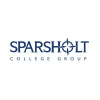Snabbfakta
-
- Midlothian
Ansök senast: 2024-06-29
Research Associate
Grade UE07 - £39,347 - £46,974 per annum
College of Science and Engineering - School of Informatics
Full time - 35 hours per week
Fixed term contract - 12 months
The School of Informatics, University of Edinburgh invites applications for a Research Associate in Deep Learning, Machine Learning Methods and Reinforcement Learning, to work with Prof Amos Storkey, Dr Peter Bell, and Dr Stefano Albrecht.
The researcher will work on multi-modal data including text and visual information to help with data efficient reinforcement learning and offline reinforcement learning. They will be part of the new , the and the .
The Opportunity:
is one of the largest research centres in Computer Science in Europe, and it has been in terms of research power by a large margin. Informatics, Edinburgh is world renowned in Machine Learning and Reinforcement Learning, publishing in all the top venues in these fields. We are offering an exciting opportunity to work in an interdisciplinary, collaborative, friendly, and supportive environment, integrating different sub-fields of within Artificial Intelligence.
Reinforcement learning (RL) algorithms aim to train a decision policy for an agent to achieve a specified task in an environment. The agent’s policy is trained by choosing actions which maximise the cumulative rewards received by the agent from its environment. With the introduction of deep learning into RL, “deep RL” algorithms have achieved unprecedented scalability, enabling the solution of complex decision tasks, such as autonomous driving [1] and beating human champions in games such as Go [2]. However, a current limitation of deep RL is that the training process typically requires orders of many millions of environment interactions in the precise environment (i.e. training data), which is infeasible in real-world applications where obtaining samples poses a significant bottleneck. Good transferability between different related environments is also still not generally achievable. Thus, developing approaches to improve the sample efficiency of deep RL algorithms, i.e. learning good policies with minimal data or from information learnt elsewhere, is a high-priority research topic.
Akin to the idea that, for humans, reading the rules of e.g. a board game helps a person play that game better and more immediately than just doing random things and seeing what happens, in this project we consider the benefit of multimodal image and textual sources for data efficient RL. The researcher will be involved in deploying multimodal benchmarks for RL, and developing integrative models that can understand the implication of textual cues to aid understanding of the environment, the action space, the reward space, and the potential policy space. This method will utilise recent approaches in contrastive learning to aid this.
We welcome both local (UK-resident) and international applicants. This position will include funding for international travel – e.g., for attending conferences, visiting research collaborators, and disseminating research findings. Furthermore, the researcher will have access to the computing infrastructure and office spaces available within Informatics and the research groups.
We are strongly committed to offering everyone an inclusive and non-discriminating working environment. We warmly welcome qualified candidates from all backgrounds to apply and particularly encourage applications from under-represented groups in the field.
Your skills and attributes for success:












